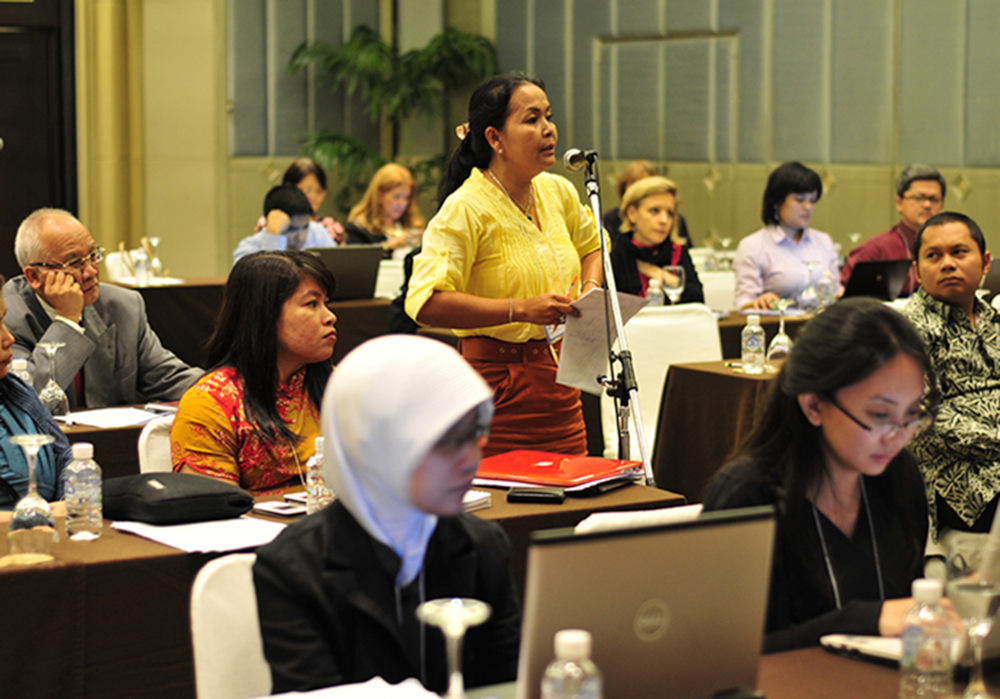Asia & Pacific
Ensuring access to justice for marginalized groups in situations of vulnerability and accountability for human rights violations are a central focus of the Asia Pacific Programme (APP). The ICJ’s Asia and Pacific Regional Office is based in Bangkok, Thailand, and the South Asia office is based in Kathmandu, Nepal. The APP works through a network of locally-based Legal Advisers and Consultants who reflect the diversity of the region.
The Asia Pacific Programme promotes and protects the independence of lawyers and judges, advocates for the better incorporation of international laws and standards in domestic law in the region and works to build an effective public advocacy strategy in multiple countries to promote the Rule of Law and protect human rights.
Long-standing armed conflicts, democratic backsliding, and systematic and ongoing violations of human rights have eroded the Rule of Law in the region. In addition, shrinking civic space coupled with widening economic disparities have resulted in large sections of the population in Asia being deprived of equitable access to justice.
To address these issues the APP adopts a unique approach of engaging with governments and justice sector actors in the region without stepping back from its public advocacy on Rule of Law and human rights issues both nationally and internationally.
We support programmes on women’s access to justice; the elimination of gender-based discrimination and violence, the promotion and protection of minority rights the rights of minority groups; economic, social and cultural rights; freedom of expression and digital rights; business and human rights, particularly in relation to special economic zones and cross border investment; the promotion and protection of human rights in the context of climate change and accountability for human rights violations and transparent transitional justice processes.
The APP team engages on these programs by conducting in-depth legal research which informs advocacy; awareness raising and legal reform initiatives; building the capacity of judges, lawyers and civil society representatives through the provision of technical assistance; carrying out trial observations; and supporting local strategic litigation efforts.

